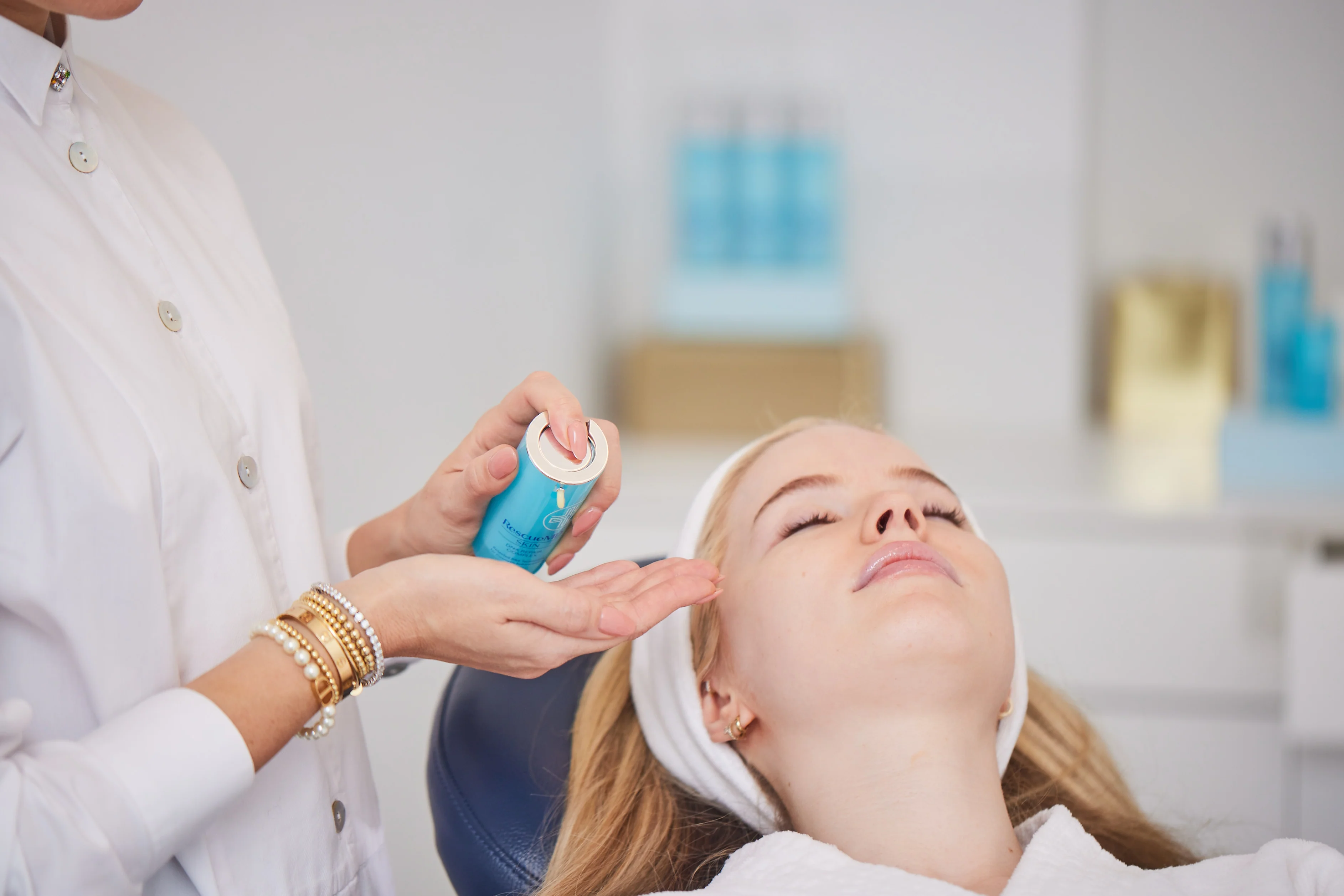
What Is Contact Dermatitis?
Common triggers include:
- Soaps, detergents, or cleaning products
- Metals like nickel in jewelry
- Cosmetics or skincare products
- Plants such as poison ivy, oak, or sumac
- Chemicals at work or home

How We Diagnose Contact Dermatitis
Treatment Options for Contact Dermatitis
Successful treatment starts with avoiding the substance causing the reaction. From there, our dermatology team may recommend:

Topical Medications
Prescription-strength corticosteroid creams or ointments help calm inflammation, reduce redness, and relieve itching in affected areas.

Oral Medications
For more severe reactions, antihistamines can ease itching, while short courses of oral corticosteroids may quickly control widespread rashes.

Skin Barrier Support
Moisturizers and barrier creams strengthen and repair the skin, protecting against irritants and allergens while supporting long-term healing.

Symptom Relief
Cool compresses, soothing oatmeal baths, or calamine lotion can provide quick comfort and reduce irritation during flare-ups.

Advanced Therapies
For chronic or stubborn cases, options like phototherapy or immunosuppressive medications may be recommended by our dermatology team.
Why Choose Altitude Dermatology for Contact Dermatitis Treatment
Local Expertise
Trusted dermatology care in Johnstown, Longmont, and soon Fort Collins.
Comprehensive Testing
On-site patch testing and advanced diagnostics to identify triggers.
Personalized Care
Treatment plans tailored to your skin, your environment, and your needs.

Experienced Providers
Board-certified dermatologist Dr. Brad Baack and our skilled PA-Cs, April Hofmann and Eric Krinsky, bring years of experience treating skin conditions like contact dermatitis.






